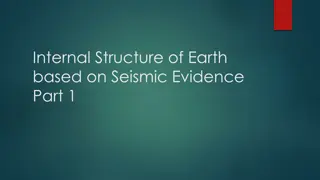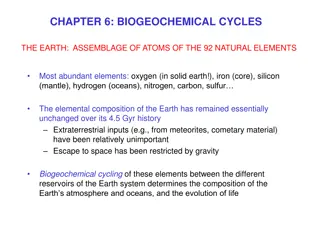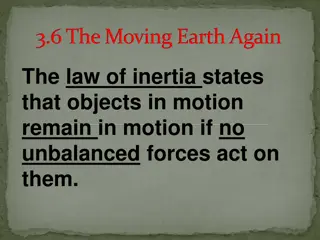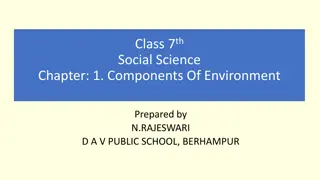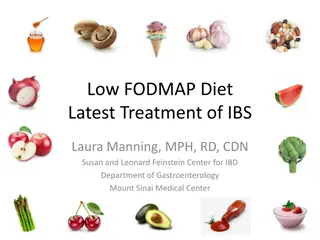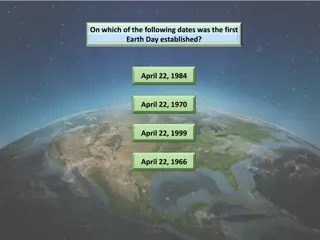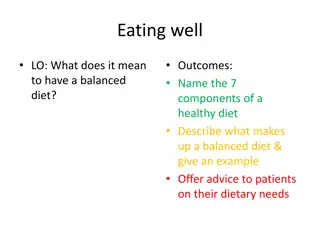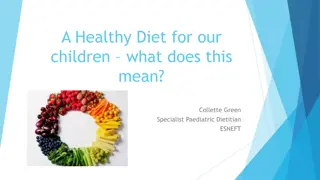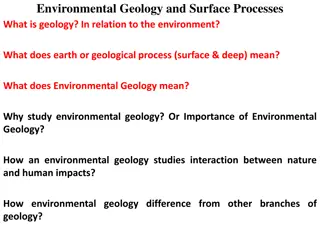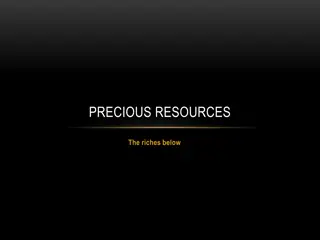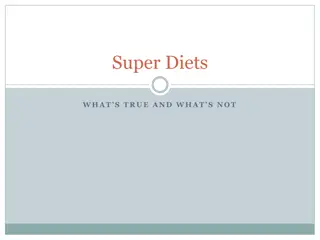The Impact of Diet on the Environment: Is Your Diet Destroying the Earth?
People choose vegetarianism for various reasons including ethics, health, and environmental concerns. Studies show that meat consumption significantly impacts the environment through resource depletion and greenhouse gas emissions. Modifying diets to focus more on plant-based foods can lead to more sustainable land and water use, reduce methane emissions from livestock, and mitigate climate change. Adopting a vegetarian or vegan diet, even partially, can contribute to environmental preservation.
Download Presentation

Please find below an Image/Link to download the presentation.
The content on the website is provided AS IS for your information and personal use only. It may not be sold, licensed, or shared on other websites without obtaining consent from the author.If you encounter any issues during the download, it is possible that the publisher has removed the file from their server.
You are allowed to download the files provided on this website for personal or commercial use, subject to the condition that they are used lawfully. All files are the property of their respective owners.
The content on the website is provided AS IS for your information and personal use only. It may not be sold, licensed, or shared on other websites without obtaining consent from the author.
E N D
Presentation Transcript
Active 2 Unit 1- Chapter 2 Is your diet destroying the environment? : 1401-1402
People become vegetarian for different reasons. Some adopt a vegetarian diet as the ethical alternative to eating meat, because they believe killing animals is wrong. People who are concerned about their health see it as a good way to keep slim and lower their risk of various diseases. Lately, more people are replacing meat with vegetables because of the vital role this plays in protecting the environment. .
Researchers from the Union of Concerned Scientists in the U.S. released a report on the impact of consumer behavior on the environment. Their study showed that meat consumption is one of the main ways that humans can damage the environment, second only to the use of motor vehicles. .
But how will modifying our diets make a difference? We can compare the number of resources needed to produce meat and crops'. For example, we need almost 20,000 liters of water to produce a kilogram of beef, whereas only 150 liters of water is needed to produce a kilogram of wheat. Similarly, one hectare (or 10,000 square meters) of farmland that is used for raising livestock produces about 227 kilograms of beef, but the same amount of farmland can produce 13,600 kilograms of carrots, 18,000 kilograms of potatoes, or 22,7000 kilograms of tomatoes. It's clear that we can make more efficient use of land and water if we produce crops instead of meat. .
Raising livestock also contributes to rising global temperatures. Animals such as cows, pigs, and sheep release methane a greenhouse gas that causes global warming when they pass wind, with one cow producing an estimated 500 liters of methane each day. A 2006 report by the Food and Agriculture Organization (FAO) says that livestock farming accounts for 37 percent of all methane production, and warns that methane may have a more damaging effect on the atmosphere than carbon dioxide. .
There is growing support for vegetarianism. For example, schools across England and the U.S. hold "Meat Free Mondays" to show students how easy it is to eat less meat. Some people go one step further and eat a vegan diet, which excludes all animal products such as cheese, eggs, and milk. However, some nutritionists believe that a vegan diet may deprive us of vitamins and minerals that are essential to our health. . One does not have to become vegan or fully vegetarian to help save the environment. Whether it's just being vegetarian for one day a week or just eating less meat a small effort on our part can go a long way.


![READ [PDF] Dash diet Cookbook for beginners: 365 days of simple, healthy, low-s](/thumb/2057/read-pdf-dash-diet-cookbook-for-beginners-365-days-of-simple-healthy-low-s.jpg)



